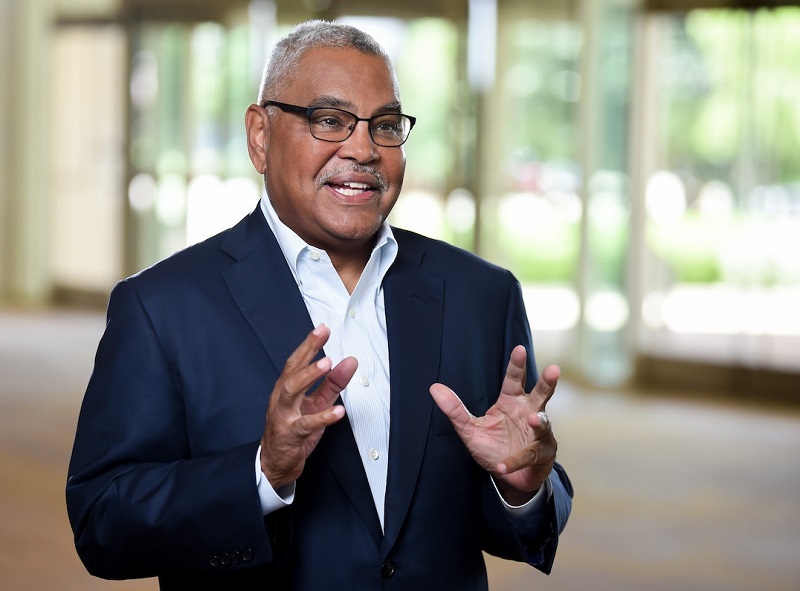New chairman of the board has a personal connection to AHA's mission
By American Heart Association News

Bertram L. Scott's meteoric rise in health care leadership was hardly a calculated move. He said he "stumbled" into the industry while attending DePaul University on a tuition reimbursement plan that had him selling health benefits to corporations.
"I went through a management program at Prudential Life Insurance Company, where I worked in claims operations, and that started me on my way," said the South Side of Chicago native.
Scott vaulted to vice president of marketing at Prudential and then to vice president of managed care operations. From there, he climbed the corporate ranks at Horizon Mercy HealthCare, TIAA-CREF, Cigna and Affinity Health Plan. He ultimately landed at Novant Health in Charlotte, North Carolina, where he recently retired.
Along the way, he was named one of the "75 Most Powerful Blacks in Corporate America" by Black Enterprise magazine in 2005 and one of "The 50 Most Powerful Black Executives in America" by Fortune magazine in 2002. But perhaps the most poignant honor of his career was receiving DePaul University's School for New Learning David O. Justice Award.
"DePaul is where it all began," he said.
As he steps down from corporate life, Scott is stepping up in volunteer leadership as the American Heart Association's new chairman of the board. His career and association service enable him to work on health equity and stroke prevention – two pursuits that are deeply personal.
"I lost my dad to heart disease and my wife to stroke, both at age 52," he said. "My dad dying young made me more aware of my health and the propensity for hypertension among black males. When my wife died, I sought to understand the health challenges of women."
It was after his dad's death, about 30 years ago, when Scott got involved with the AHA.
"I was running a health care company in New Jersey and met Michael Weamer, then-head of the association's New York Affiliate," he said. "We got in a conversation about health disparities. At the time, they were looking to increase African American participation in association programs."
Scott agreed to host a dinner focused on minority engagement and ended up joining the New York Board as a member.
"That started my more significant involvement, and I eventually became New York Board chairman, guiding the affiliate through consolidation into what later became the Founders Affiliate."
Scott moved from New York to Charlotte, where he chaired the AHA's local Heart Ball fundraiser for three years.
"About a decade ago, they called me to join the National Board of Directors," he said.
Scott is a member of the Executive Committee of the AHA Institute for Precision Cardiovascular Medicine, the Paul Dudley White Legacy Society, the Pulse Circle of the Cor Vitae Society and Circle of Red. He co-chaired Charlotte's 2018 Go Red for Women luncheon.
As chairman of the board, he aims to heighten awareness of social determinants of health – socioeconomic conditions that affect health and longevity. He's seen health disparities up close growing up in Chicago and now residing in the Stroke Belt – an 11-state region in the southeast where the risk of stroke is 34% higher, on average, than other states.
"I want to encourage more people of color to participate in the association to help solve health problems in their communities," he said. "We can make significant progress by focusing on areas where disease burden is greatest rather than where we already have support staff and infrastructure. We need to focus less on raising dollars and more on raising awareness."
Scott said he embraces his new role as an opportunity to reach more people.
"I'm encouraged by the association's efforts to get on the ground and solve problems in the community," he said. "I believe in the mission, its impact and its leadership."
If you have questions or comments about this story, please email [email protected].





